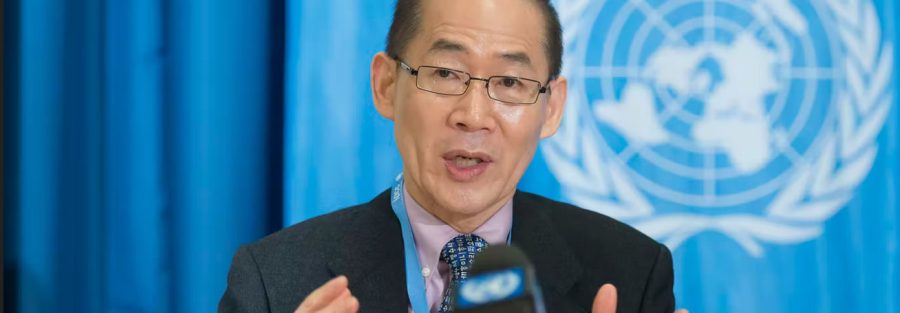Hoesung Lee was elected chair of the Intergovernmental Panel on Climate Change just one month before the landmark Paris climate talks of 2015.
The agreement that emerged from that meeting committed the world’s governments to keeping global warming below 2°C, with an aspiration of a 1.5℃ temperature limit.
As the race accelerates for individual countries to ratify the Paris agreement, and hence bring it into effect, Lee and the IPCC have been charged with assessing the science behind the 1.5°C goal.
At this crucial point for climate action worldwide, we asked eight scholars from around the world – some of them previous IPCC authors – to put their questions to the world’s most important climate expert.
In a wide-ranging conversation, Lee talks about how to get more scientists from the Global South involved in the work of the IPCC, what we do and don’t know about climate change, and how the world can meet its ambitious warming targets.
Sandrine Maljean-Dubois, Université Aix-Marseille: The objective of the Paris Agreement was to keep global temperature to “well below 2°C”. Is this still attainable? And what about limiting temperature rise to 1.5°C?
Yes, 2°C is still attainable, if the world acts fast. The IPCC’s last comprehensive assessment established a carbon budget for 2ºC and higher ranges. It also found that to have a two in three chance of holding warming to 2ºC, it would be necessary to reduce greenhouse gas emissions by 40-70% by 2050 compared to 2010, and to net zero by the end of the century.
The longer this is delayed, the harder and costlier it will be to achieve.
Governments have now set an aspirational target of holding warming to 1.5ºC. That is why they asked the Climate Panel to prepare a report on the impacts of 1.5ºC warming and related emissions pathways to take us there. We have started the preparations, and the report will be delivered in 2018.
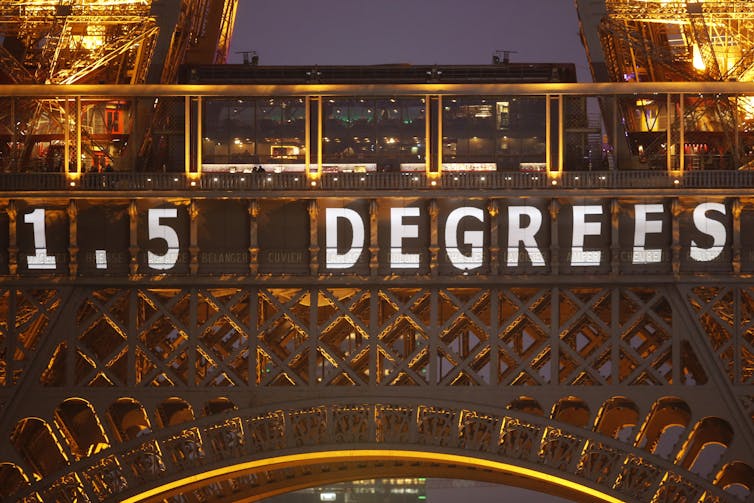
Ina Islam, Independent University of Bangladesh: What measures would you recommend governments and relevant institutions take to allow women to play their critical role in meeting the many challenges associated with climate change?
The vulnerable are often the most exposed to climate change and, in many societies, women are among the vulnerable groups.
The IPCC found in its special report on managing the risks of extreme events and disasters to advance climate change adaptation that social, economic and environmental sustainability can be enhanced by disaster risk management and adaptation approaches.
A prerequisite for sustainability in the context of climate change is addressing the underlying causes of vulnerability, including the structural inequalities that create and sustain poverty and constrain access to resources.
But I should make it clear that the IPCC doesn’t make recommendations. What we do is assess the scientific literature relevant to climate change to inform policymakers about the state of knowledge on these issues. That might include laying out policy options arising from the literature, but we wouldn’t make our own recommendations.
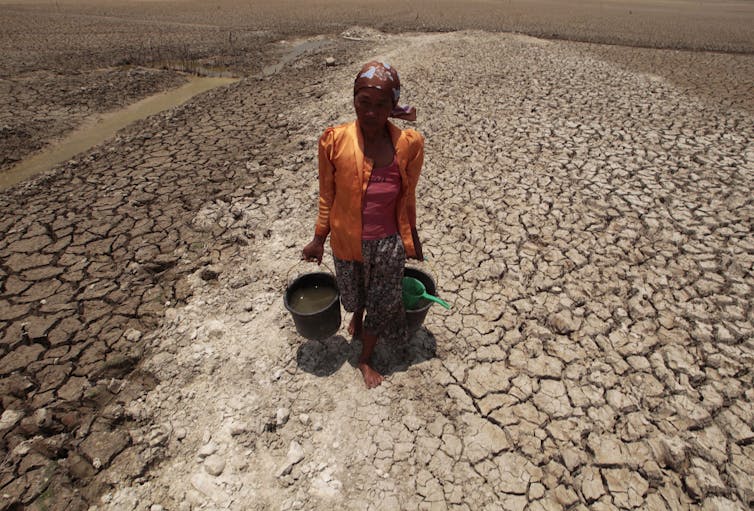
Joyashree Roy, Jadavpur University: National leaders in Paris committed to keeping emissions to below 2°C to reduce the vulnerability of their citizens, but many were also vocal about expanding economic activities to keep those same people employed, and with higher standards of living. What gives you hope that economic growth ambitions, higher standards of living, and climate stabilisation can all be delivered?
Our last assessment report found that the integration of adaptation and mitigation into planning and decision-making can create synergies with sustainable development.
Article two of the Paris agreement aims to strengthen the global response to the threat of climate change in the context of sustainable development and efforts to eradicate poverty.
We know that climate change responses can reinforce development, for instance through co-benefits – the additional advantages that come with actions to control climate change. To put co-benefits into perspective, a recent World Bank study found that air pollution deaths cost the global economy US$5 trillion annually, with 5.5 million lives lost to related diseases in 2013.
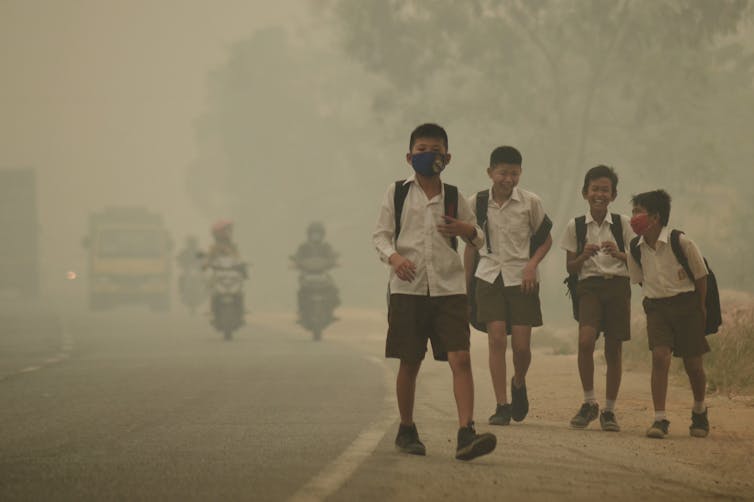
In our last report, the IPCC started to get a sense of the economics of the response to climate change. But it would be misleading simply to contrast a supposed “business as usual” involving continuing growth for years with the costs of ambitious mitigation.
Business will be far from usual in a world of four, five or six degrees of warming. It is hard to envisage such a world, and the related costs. But a decarbonised economy will provide new jobs and opportunities as green technology develops. According to the International Renewable Energy Agency, renewable energy excluding large hydropower now employs 8.1 million people, up 5% from a year ago.
So one of the key tasks for our next assessment will be to understand not only the costs of responding to climate change, but the benefits of new opportunities and the costs of inaction and ignored opportunities.
Chukwumerije Okereke, University of Reading: Many in developing countries, especially those in rural communities, have complained that they do not get sufficient information about the IPCC’s assessments and the implications for their livelihood. Does the chair have any concrete plans to make the output of IPCC assessments more widely available to the world’s poor?
This is a very important question. One of the best ways we can tackle it is by getting scientists from developing countries more closely involved in our work. We are looking at various ways to enhance the participation of developing countries in the work of the IPCC.
We also have an outreach programme where we bring authors from the IPCC to different countries to present our findings, and work with policymakers, scientists and other local stakeholders. The emphasis is on developing countries, and we have covered most regions in the world. We hope to get to West Africa next year.
But there are limits to what we can do with our own very limited resources. We therefore rely on third parties to act as multipliers, spreading information about the IPCC. We are looking at ways of working with some of those people who produce reports based on our assessments that target particular audiences in different countries, to help ensure their accuracy.
We would greatly welcome advice and suggestions on how we can reach more people in developing countries.
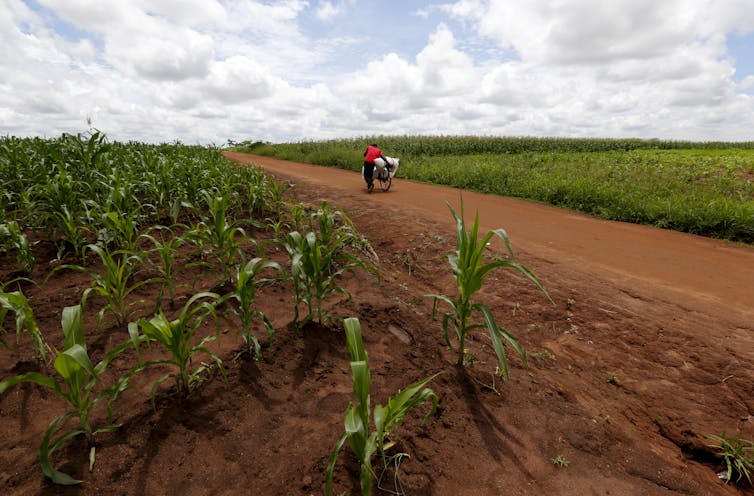
Shobhakar Dhakal, Asian Institute of Technology: Science is loud and clear on global climate change. Yet our knowledge of risks and solutions of climate change at the local level – in the cities, regions and nations where actions must take place – are weak. How can a global organisation such as the IPCC address locally relevant climate change science and action?
You’ve raised an issue we are well aware of at the IPCC. Governments want the panel to pay special attention to regional questions in our next assessment. After all, local impacts are most relevant to policy makers. We will do so, but exactly how will be determined when the panel scopes the outlines and structure of the report early next year.
With more than half the world’s population living in urban areas, we know that cities offer particular challenges and opportunities for mitigation and adaptation. In our last comprehensive assessment, we introduced dedicated chapters on urban areas and human settlements, but we can increase this focus.
So in the assessment cycle starting in 2023, the panel will produce a special report on climate change and cities. To encourage research on this topic, we have proposed to co-sponsor an international conference on climate change and cities in 2018. We will also pay special attention to this topic in our next assessment.
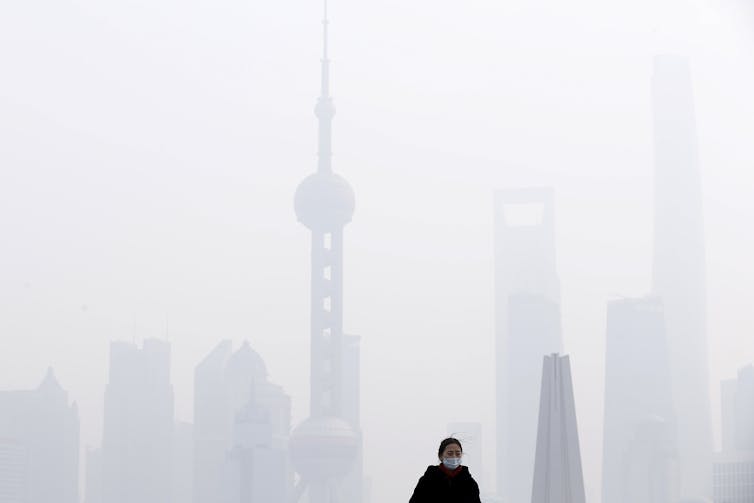
Michel Damian, Université Grenoble Alpes: In 2015, you wrote: “The focus on solutions will be a major component of my tenure at the IPCC”. Does this focus on “solutions” represent a major reorientation of the work of the IPCC?
It’s a change in emphasis rather than a major reorientation. The IPCC has always looked at solutions – our Working Group II considers adaptation, and Working Group III is devoted to the mitigation of climate change.
There is plenty more to learn about climate science, especially impacts at the regional level. But with our last comprehensive assessment, the basic facts of climate change are now well understood. The Paris agreement drew on the findings of that report.
With the agreement now in place, it’s natural that policymakers turn to implementation, hence an increased interest in solutions. For that reason, the panel will be turning increasingly to social science, political science, economics and similar disciplines in our next assessment.
Angelina Davydova, St Petersburg State University: How can we attract more scientists from the Global South to work with the IPCC on further Assessment Reports?
This is a priority for us, and we are looking at different ways to facilitate this. One thing we already do is when we hold an outreach activity in a country, we always include a session with young scientists, where IPCC authors and the scientific leadership explain to them what is involved in working as an author on an assessment.
Another step we have just taken is to develop a library facility with the help of UN Environment, to give our authors access to the relevant scientific literature.
Joice Ferreira, Federal University of Pará: The Amazon rainforest is facing alarming threats from deforestation and climate change. As an ecologist working in the Brazilian Amazon, I would like to know where you think the scientific community needs to most urgently prioritise its efforts to strengthen understanding of the critical role that this, and other major biomes play in shaping the Earth’s future climate?
There were a number of research and knowledge gaps identified in our last report. The incorporation of interactive components of the carbon cycle – including terrestrial and oceanic sources and sinks – into analyses and models is a growing need.
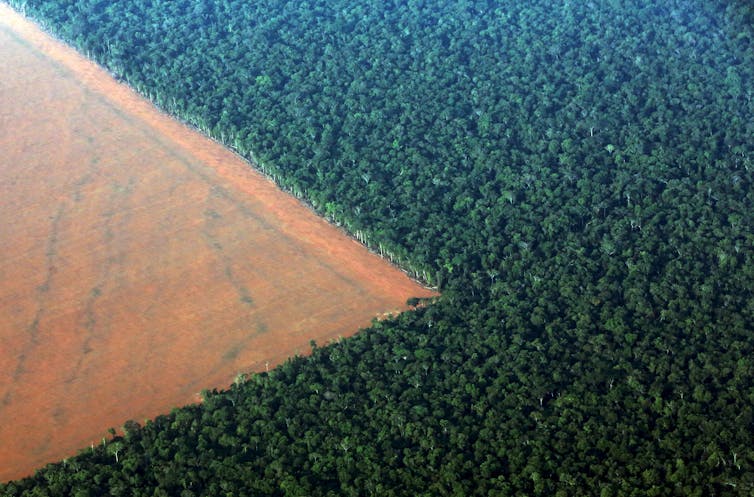
The fifth assessment report also identified a substantial gap in the literature on how climate change may affect the food system beyond production, such as food availability, quality, and food stability. Indeed, we have learned more (and with greater confidence) about the impact of climate changes on food production – crop yields, fisheries and livestock – but we know comparatively little about how climate change will affect the post-harvest stages. Since global food production is the result of hundreds of millions of farming households responding to diverse economic incentives, estimating the long-run implications remains difficult, but critical to identifying potential policy interventions.
Increasing efforts to mitigate and adapt to climate change will involve increasingly complex interactions, particularly at the intersection of water, energy, land use and biodiversity. But tools to understand and manage these interactions remain limited. Though there has been an increased focus on policies to integrate multiple objectives, increase co-benefits and reduce adverse side effects, the analytical and empirical underpinnings of many of the interactive effects are under-developed.
Regional aspects are very important, especially for extreme events, yet some major data gaps in observations have been identified in Africa, South America and Asia, as well as for complex topographies and major river basins. The overall perspective from the latest adaptation report is that producing the required regional climate information for those who need it is still an ambitious target. Until we produce scale-relevant information to inform decisions, science will have minimal immediate value to society.
Ecologists and economists need to collaborate closely to improve data and methodology for estimating the economic value of ecosystem services. This will help improve our understanding of climate damage and facilitate investment for sustainable development.
https://theconversation.com/ipcc-chair-hoesung-lee-we-can-meet-2-c-global-warming-target-if-we-act-fast-65418




